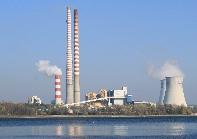Earlier this month Google hosted “How Green is the Internet?“, a summit which looked at the environmental costs of the connected society and technologies like cloud computing and Big Data.
The environmental impact of the internet and related technologies is a subject worth exploring, like all industries there are real costs to the planet which usually aren’t bourne by those who make the profits or reap the benefits.
In complex modern supply chains which often span the globe, the costs are not often apparent either. What appears to be a relatively clean, innocuous product to city consumers could have terrible environmental consequences for others.
Google’s summit is a good example of overlooking many external costs in that most of the conversations looked at reducing energy usage, understandable given the company’s dependence on power hungry data centres which drive their cloud computing services.

Energy usage is important in the discussion about digital technologies – the businesses of bits and bytes almost wholly relies upon having constant and reliable electricity supplies and power generation is one of the most environmentally damaging activities we engage in.
Focusing on energy consumption though is not the only aspect we need to look at when examining how green the internet is, there’s many other costs in building the supply chain that enables us to watch funny cat videos in our homes or offices.
The entire supply chain is complex and the session on infrastructure costs by Jon Koomey of Stanford University touched on this; there’s the environmental costs of building data centres, of manufacturing routers, of laying cables and – probably the most difficult question of all – what do we do with the e-waste generated by obsolete equipment.
Little of this was touched on in the Google conference and it’s interesting that the tech industry is focusing on the energy costs while overlooking other effects of a global, complex industry.
That isn’t to say the energy story isn’t valid. A number of the Google speakers emphasized the indirect energy saving costs as cloud computing and Big Data allows more intelligent business decisions that make industries and daily life more efficient.
A favourite example is the use of car parking apps where drivers save energy and reduce pollution because they aren’t driving around looking for the parking spaces. This puts Google’s acquisition of traffic app Waze into perspective.
Reducing driving times is just one area of where the internet is improving energy efficiency and these are important factors when considering the ‘greenness’ of the web.
However without considering the full impact of building, maintaining and disposing the equipment that we need to operate the internet, we aren’t really looking at the entire impact the internet is having on the planet.
Google’s conference though is a good starting point for that discussion which is one that every industry should be having.

Leave a Reply